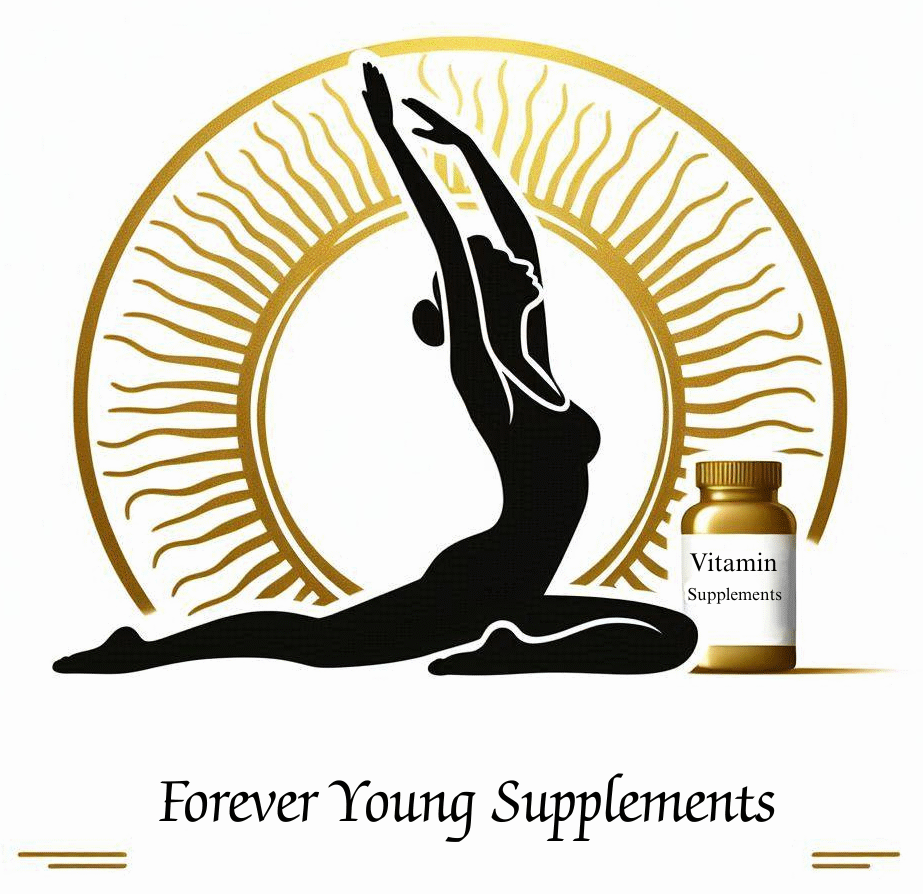Seniors thinking about adding a new supplement to their routine often have a lot on their minds. With so many products on store shelves and new claims popping up every day, it can be confusing to figure out what is genuinely helpful and what could actually do harm.
I will break down the key things an older person should keep in mind before starting a new supplement, how to avoid common pitfalls, and which vitamins and supplements deserve extra attention.

Understanding Supplement Basics for Seniors
Supplements come in the form of vitamins, minerals, herbs, and blends that promise better health, stronger bones, sharper memory, or more energy. They are big business, and adults over 60 are among the top users. But not every supplement is worth the hype, and some can do more harm than good, especially as we get older.
Our bodies change with age. Nutrient absorption slows, drug metabolism switches up, and sensitivity to certain minerals goes up. What once seemed harmless in your forties might need a much closer look at seventy. That’s why it is important to know the basics of how supplements work and how they fit into your overall health picture.
Why Seniors Consider Supplements
Health issues like osteoporosis, joint pain, low energy, and weakened immunity often prompt seniors to think about supplements. Certain medications, like acid reducers and diuretics, can lower levels of nutrients like B12 and potassium. Diets can narrow with age, making it tough to get everything you need from food alone. In these cases, extra nutritional support makes sense. The trick is to focus on the right supplements for your individual needs, not just the latest trends at the pharmacy or online.
What Supplements Seniors Should Avoid
Supplements aren’t regulated as strictly as prescription medication and therefore there can be a lot of variety in quality and safety. Some supplements are a bad fit for seniors because of their potential for serious interactions, side effects, or toxicity. Here are some worth reconsidering:
- Vitamin A: High doses can build up in the body over time, increasing the risk of bone loss and liver problems. Most seniors get enough from food.
- Vitamin E: Large doses (beyond 400 IU daily) have been linked to a higher risk of bleeding, particularly for those on blood thinners.
- Iron: Unless a doctor detects a true deficiency, iron supplements can cause constipation, upset stomach, or even organ damage.
- Calcium: Going over the recommended amount, especially with some heart medications, can lead to kidney stones and heart issues.
- Herbal supplements: Ginkgo, St. John’s Wort, and ginseng are popular, but they can mess with heart, blood pressure, and mental health medications. Always double-check with your doctor or healthcare provider.
For a thorough list of possible supplement interactions and safety info, I usually recommend checking with your GP (doctor) or asking your pharmacist for guidance.
Key Supplements for Seniors: What’s Actually Helpful
While eye catching labels can pull you in, a few supplements do have solid research to back their benefits for seniors, provided they are used the right way. Here is what I think is especially helpful to know:
- Vitamin D: Important for bone health, immune function, and muscle strength. Many older adults don’t get enough, especially those who avoid sun exposure.
- Calcium: Essential for keeping bones sturdy, but more isn’t always better. Sometimes getting enough from diet is hard, but dosage matters.
- Vitamin B12: Needed for nerve and blood cell health. Absorption drops with age, so some people over fifty benefit from a simple supplement or B12-rich foods.
- Omega3s (fish oil): These healthy fats may support heart and brain health, but always check with your doctor if you’re on blood thinners.
- Magnesium: Involved in hundreds of body processes, magnesium supports everything from bone health to blood sugar management consult first, especially if you have kidney issues.
Of these, Vitamin D stands out as the most important supplement for seniors. Levels naturally dip with age, and low vitamin D is linked to fractures, weaker muscles, and even mood changes. I’ve seen doctors recommend this one consistently, but they’ll usually test your blood first to decide the right dosage.
Should 70-Year-Olds Take Supplements?
There’s no single rule for every seventy year old when it comes to supplements. Many people in their seventies do benefit from certain supplements, especially when tests show they are low in specific nutrients. Common reasons for using them at this age include:
- Diet changes or low appetite
- Chronic health conditions that block absorption
- Medication side effects that lower nutrient levels
- Difficulty preparing or buying balanced meals
If you are healthy and eat a wide range of foods, you may not need much beyond a basic multivitamin or extra vitamin D. But if your doctor sees signs of deficiency, like brittle bones or fatigue, targeted supplements can be really useful. Checking in with your provider ensures that you are getting help that fits your specific health needs.
Vitamins Seniors Shouldn’t Take Together
Some vitamin combos don’t mix well and can either limit absorption or risk side effects. A big one to know: Calcium and iron shouldn’t be taken together. Calcium blocks your body from absorbing iron, so take them hours apart if you need both.
Another tip is to avoid taking high dose zinc and copper at the same time, since excess zinc can lower copper absorption. Some folks also split vitamin D and magnesium to avoid mild digestive issues, although for most, this isn’t a major problem.
Whenever you’re mixing supplements, check for possible interactions. Pharmacists are pretty handy here, as they can review your medication and supplements for any red flags.
Quick Steps Before Starting a New Supplement
- Talk to your doctor or pharmacist first: This is a biggie. Even if something seems safe, your other medication or health conditions could change the equation.
- Check trusted sources: The National Institutes of Health has a free supplement fact sheet that’s super useful for sorting evidence from hype.
- Review your medications: Write down everything you take, including over the counter drugs, and share the list at checkups.
- Stick to single ingredient products at first. This makes it easier to spot side effects or reactions.
- Start low and go slow: Try the lowest suggested dose and only increase if your doctor agrees.
Stay sharp for new side effects or reactions, and bring up anything unusual at your next appointment.
Common Hurdles When Using Supplements
- Product quality varies a lot. Look for seals from groups like USP or NSF, which test for purity and contamination.
- Costs can build up fast. There’s no need to buy every new product. Focus on what’s shown to help you and skip the rest.
- Information overload. If you’re seeing lots of conflicting advice, check government or university run health sites. Those sources cut through the noise.
Extra Tips for Getting the Best Results From Supplements
Once you’ve picked the right products and double checked with your healthcare team, a few habits help you get results without headaches:
- Take supplements at the same time every day for best absorption.
- Store bottles away from heat and humidity, not in the bathroom.
- Read the whole label. Watch for warnings or directions, especially regarding food, timing, or other meds.
Keeping an up to date list of everything you take (including vitamins, minerals, and over-the counter medicatoon) is really important, especially if you see multiple providers.
Frequently Asked Questions About Supplements for Seniors
What supplements should seniors not take?
Some supplements aren’t a good idea for most seniors because they can build up in your body or interact with medications. These include high dose vitamin A, vitamin E, iron (unless prescribed), and certain herbal blends. Always check with your provider before trying something new.
What is the most important supplement for seniors?
Vitamin D is often considered the most important, especially for bone, immune, and muscle support. Many adults over age sixty five need extra, since natural levels drop with age.
Should seventy year olds take supplements?
Many people in their seventies benefit from targeted supplements like vitamin D, calcium, or B12, especially if their diet is limited or blood tests show low levels. Ask your doctor for advice based on your health and medications.
Which two vitamins should not be taken together?
Calcium and iron shouldn’t be taken at the same time, since calcium blocks iron absorption. Take them at separate times for best results.
Final Thoughts
Adding supplements can make a difference for seniors, but only if you pick what’s really helpful and avoid risky combos. Getting tailored advice, checking reliable sources, and reviewing medications are crucial steps. With the right info, you can safely boost your health and stay active longer.


Oh my gosh, thank you SO much for sharing this amazing content! Seriously, I’ve learned so much from this and it’s exactly what I needed. I’m definitely bookmarking this post because it’s packed with so many valuable tips. It’s not just helpful—it’s going to make a huge difference in how I take care of my mom moving forward. I’ve definitely learned some things I hadn’t even considered, and it’s going to help me avoid any mishaps in the future. Your insight and knowledge are so appreciated, and I can already tell it’s going to make a positive impact. Thank you again for sharing this!
Thank you so much for your kind words. I truly appreciate you taking the time to share this!
I am really glad to hear the information was helpful and that it offered some new insights for supporting your mum. It is great that you are thinking ahead and looking out for potential pitfalls, as supplements can be surprisingly complex, especially when medications and age related changes come into play.
Wishing you and your mum all the best on your health journey!
The medication interaction checklist is exactly what seniors need – so many don’t realize common supplements like ginkgo or St. John’s wort can impact blood thinners or diabetes medications. Your emphasis on starting with bloodwork first is crucial, not because it is an unknown fact, but because all know its importance yet they don’t do it.
The absorption timing chart for different supplement types (fat-soluble vs. water-soluble) is particularly useful. Most guides overlook how digestive changes with age affect nutrient uptake. Have you found certain forms (like methylated B12) consistently better absorbed for seniors?
Your “low-and-slow” dosing advice could prevent so many adverse reactions. That 3-day observation window between dosage changes is wisdom I wish more practitioners emphasized.
Thank you so much for your thoughtful and insightful comment. You have touched on several key points that are often overlooked yet critically important for seniors navigating supplement choices.
Medication interactions are one of the most underappreciated risks when it comes to over the counter supplements. Ginkgo, St. John’s Wort, and similar herbs may seem harmless due to their natural branding, but their effects on blood thinners, diabetes medications, and mental health drugs can be serious. It is one of the reasons I always recommend checking with a pharmacist or provider before starting anything new.
You also raise an excellent point about supplement forms and absorption. Methylated B12 (like methylcobalamin) does appear to be better tolerated and more efficiently absorbed, particularly in seniors with reduced intrinsic factor or methylation pathway issues. Similarly, sublingual forms or injections may be more effective for those with compromised gut absorption.
I am glad you mentioned fat vs water soluble vitamins and digestive changes with age. It is an area I plan to expand on in a follow up post. Seniors dealing with lower stomach acid or changes in bile production may need to adjust when and how they take certain nutrients, and timing can make all the difference in effectiveness.
Lastly, your reinforcement of the “low and slow” approach is appreciated. That 3 day observation window between changes is a fantastic rule of thumb It is simple, but powerful. It is reassuring to hear from others who see the value in a cautious, body aware approach to supplementation.
Thanks again for engaging so thoughtfully. Your comment adds a lot of value to the discussion!